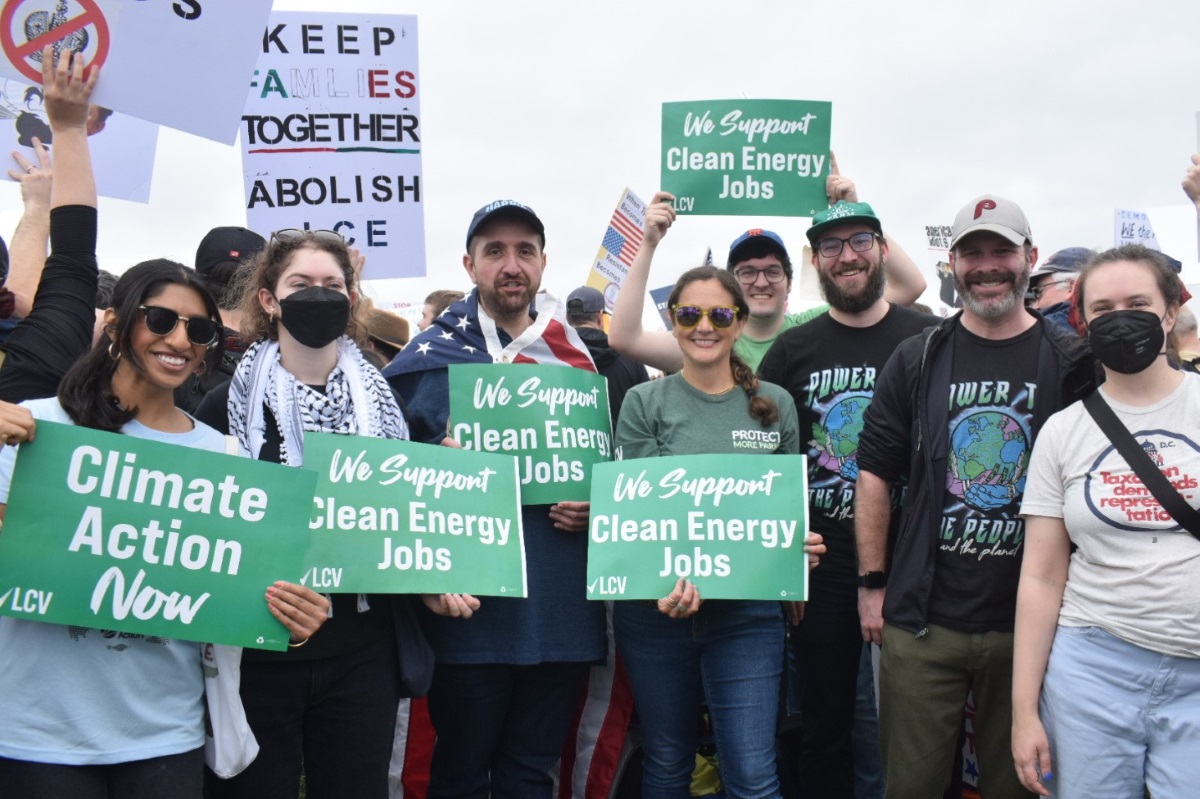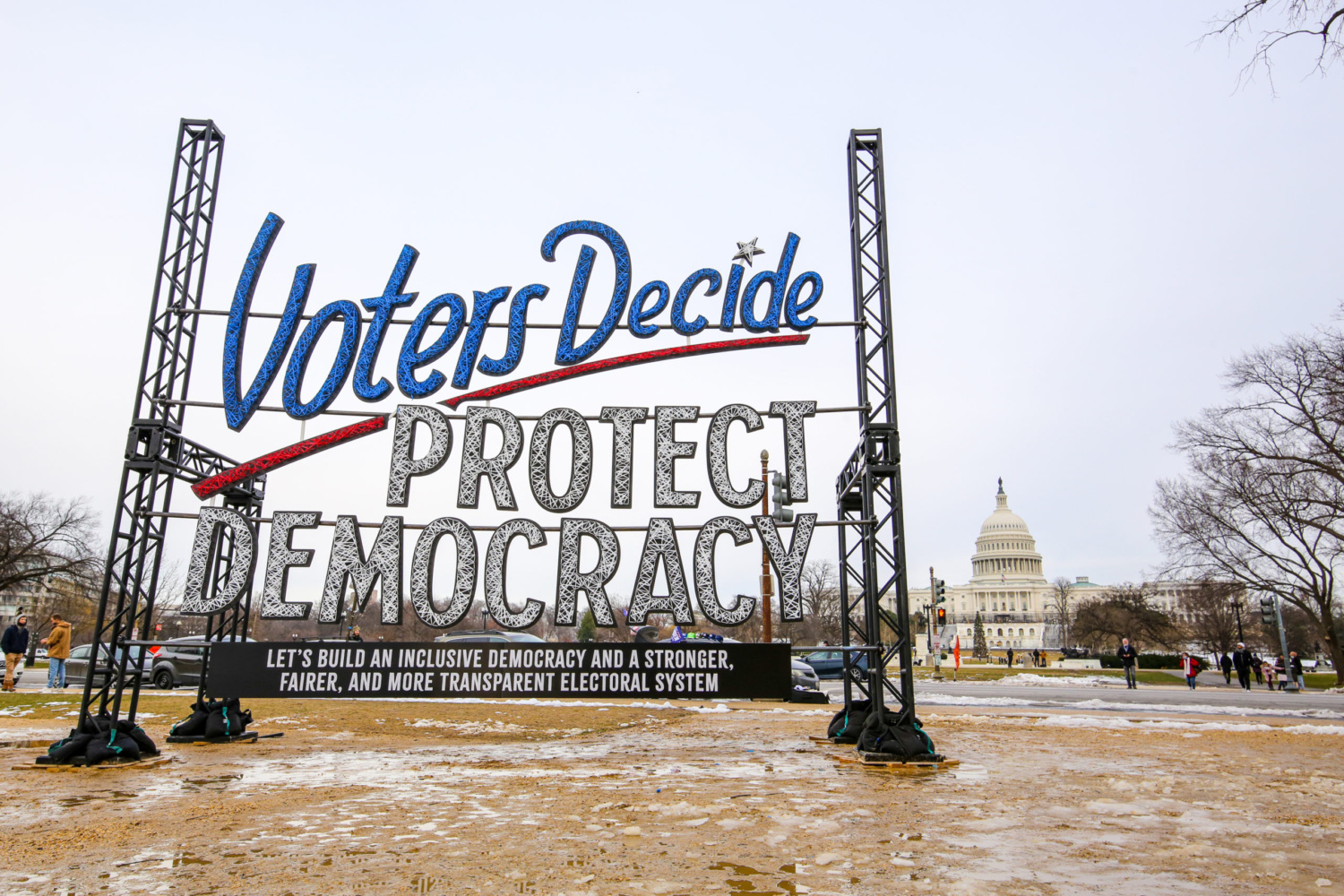
Hands Off!: Millions of Protesters Send a Message to Donald Trump and Elon Musk
Apr 11, 2025

This year’s Earth Day is as urgent as any since its establishment in 1970. That year, 20 million people of all ages, political affiliations, and backgrounds joined together for our nation’s first Earth Day to collectively protest more than a century of environmental pollution and destruction caused by unchecked industrial polluters.
The most recent report from the Intergovernmental Panel on Climate Change (IPCC) warns that humankind is at serious risk. The effects of a warming climate on some ecosystems are nearing irreversibility, with dire consequences for generations to come if we don’t take action at the scale that science and justice require. That action includes fighting for a stronger democracy that ensures all communities have their voices heard and can elect leaders who will address the climate crisis and environmental injustice.
It is crucial the people and communities working to address the climate crisis have access to our elections: Indigenous communities and communities of color facing generations of environmental injustice, young people concerned for our future, parents worried about their children’s health, farmers and farmworkers facing toxic runoff, and communities living with polluted air and water from nearby factories.
Yet too many of the communities on the frontlines of the climate crisis and pollution are the same communities whose freedom to vote is routinely suppressed by restrictive voting laws and limited access to the ballot box. On average, Black and Latino voters each spend around 45 minutes more in waiting lines to vote than white voters. And extremists want to further restrict voting access, targeting young voters and voters of color with 370 bills introduced this year in state legislatures across the nation.
However, we can build a more equitable, more sustainable, and healthier future for all by advocating for policies that safeguard democracy and protect our right to vote in free and fair elections. This is how “we the people” can elect representatives who will protect the land, air, and water we depend on.
Over 50 years ago, Congress took bipartisan action to pass transformational landmark legislation to tackle pollution and protect public lands. Democratic President John F. Kennedy established the Land and Water Conservation Fund and Republican President Richard Nixon signed the Clean Air Act. Imagine: bipartisan action and support to address issues impacting every community in our country.
That’s almost unimaginable today as a consequence of extreme politicians and judges bolstered by wealthy donors, big polluters, and corporate special interests who have been chipping away at protections for our democracy and landmark pieces of environmental legislation for over a decade. They gutted the Voting Rights Act, are undermining the Clean Air Act, and are weakening voters’ ability to hold them accountable when they put profits over people, both by opening the floodgates of corporate money in politics and gerrymandering maps so they can pick their voters instead of having voters who pick them. With these attacks on our democracy, we’ve seen disinformation to undermine confidence in elections, threats directed at election officials and workers, and candidates unwilling to accept the outcome of free and fair elections.
But hope is not lost. Leaders of the civil rights movement and environmental movement of the 60s and 70s faced many challenges that seemed insurmountable at the time. Yet the Voting Rights Act and many of our nation’s bedrock environmental laws were enacted during those years.
We, too, can overcome the challenges of today.
Congress must take action to protect the right to vote by passing federal legislation including the Freedom to Vote Act and the John Lewis Voting Rights Act so The People can have their say instead of polluters. Climate legislation like the Inflation Reduction Act, which made a historic investment in our clean energy economy to put us on track to meet the goal of 50% reduction in carbon emissions by 2030, isn’t possible without access to the ballot box so communities can elect leaders who will put people over polluters. The need to protect the freedom to vote also extends to the local level. Colorado is a model for accessible and secure elections with vote by mail for all, automatic voter registration, guaranteed ballot drop boxes on college campuses and Tribal lands, weeks of early voting, and same day voter registration.
America’s democratic values are strong – and so is our commitment to protecting the natural world around us. To achieve lasting progress towards environmental justice and a more equitable democracy, we must build a diverse coalition that truly looks like America and centers the voices of Black, Latino, and Indigenous people and people of color, as well as younger generations who have the most at stake. Together, we can ensure a more free and fair democracy and continue to take steps toward addressing climate change and protecting the environment so every person can thrive.
Colorado Secretary of State Jena Griswold
LCV Senior Director of Civic Engagement Hilda Nucete